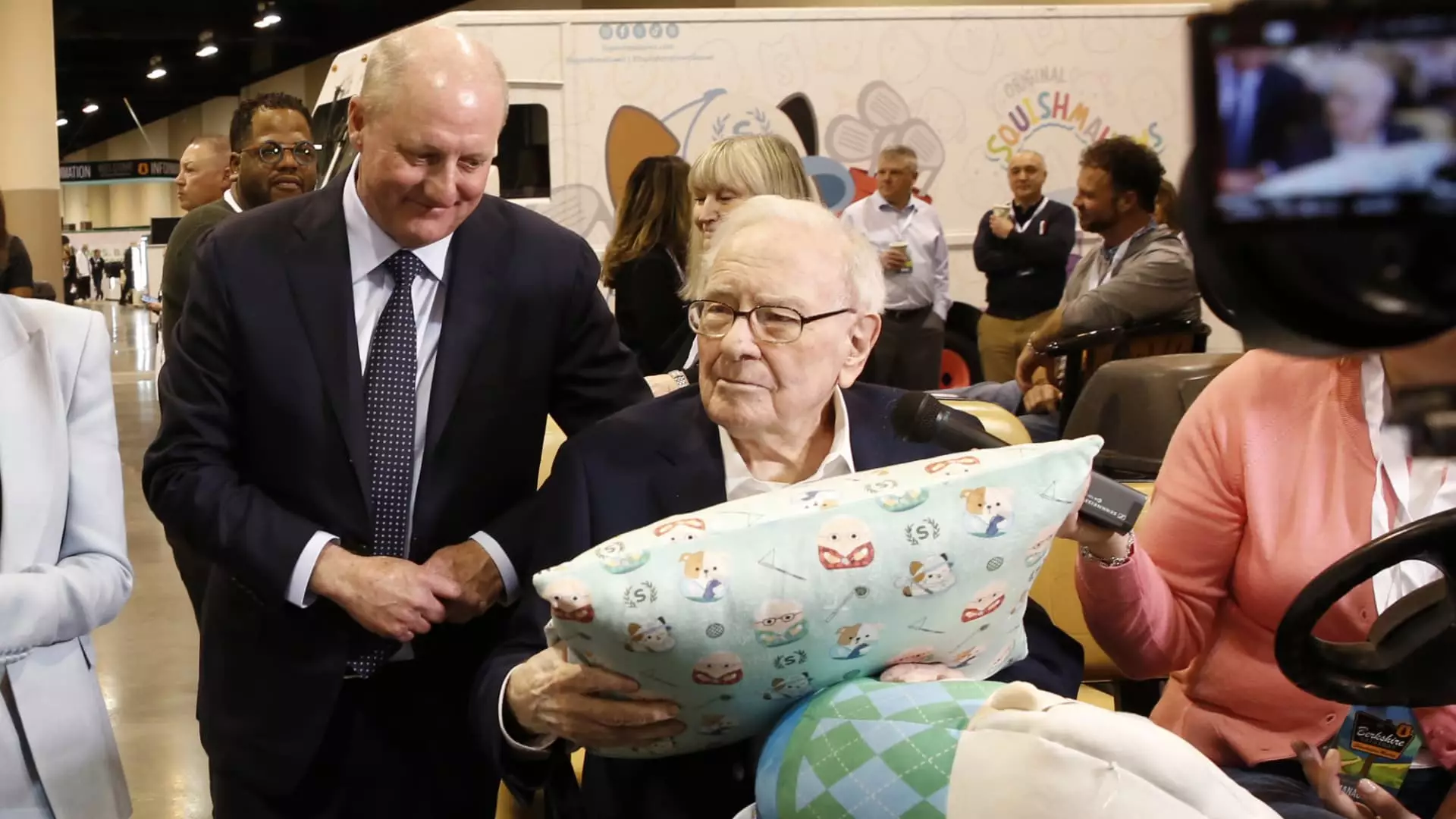On a seemingly ordinary Monday, retail investors made an extraordinary statement by pouring over $24 million into Berkshire Hathaway’s Class B stock. This influx—nearly three times the amount seen the previous Friday—demonstrated that this was not merely a case of loyalty to Warren Buffett; rather, it signified a widespread confidence in the new leadership under Greg Abel. Despite the turbulent market reactions surrounding Buffett’s impending departure, the engagement from everyday traders signals a pivotal shift in investor sentiment that extends beyond the traditional adoration of The Oracle of Omaha.
The reality is that retail investors are far more astute than ever, often looking for foundations that promise resilience and strategic foresight. Abel’s ascension to CEO may have sent a shockwave of uncertainty through many who view Buffett as the soul of Berkshire Hathaway, but these retail investors are evidently betting on Abel’s undisclosed potential. After all, their $24.4 million influx made it the highest recorded net inflow since 2016, and this cannot be dismissed.
The Emotional Baggage of Buffett’s Departure
It’s hard to overstate the impact Buffett has had in transforming Berkshire from a failing textile company into a $1.2 trillion powerhouse. For decades, he has garnered affection and reverence from shareholders, demonstrated notably during the annual meetings where fans wear merchandise bearing his likeness. The homage paid to him at these gatherings, particularly during the announcement of his retirement, highlights a bittersweet emotional landscape. As the crowd cheered for their beloved leader, there was an undertone of apprehension about what this change might entail for the company.
It is no wonder that many expected retail investors to retreat and sell in the face of such pivotal news. After all, replacing a legendary chief executive is fraught with risk. Yet, the opposite occurred—a shocking and bold declaration by everyday traders who, far from running scared, actively bet on a brighter future under Abel. They understood that Berkshire Hathaway had long been more than just Buffett; it was also a well-oiled machine with significant cash reserves poised for opportunistic acquisitions.
Abel’s Track Record: A Double-Edged Sword
However, this optimism also raises questions regarding Greg Abel’s credentials and his ability to guide Berkshire in the long run. Critics point to Abel’s past investment choices, which haven’t exactly dazzled investors. Will he be able to emulate Buffett’s prowess of recognizing lucrative opportunities? It is a legitimate concern for stakeholders who have witnessed Buffett’s legendary ability to identify undervalued companies and hold them long-term.
Investors familiar with the backdrop of the stock market might find some solace in Buffett’s commitment to remaining on as chairman and his assurance that he would not sell any shares. This continued involvement is crucial as it offers a stabilizing presence during a transitional period that many deem emotionally tumultuous and strategically precarious.
While Abel may not yet have the gravitas that encompasses Buffett’s legacy, the wisdom shared during his public introduction—coupled with Buffett’s endorsement—was aimed at quelling fears. In an era that increasingly prioritizes strategic leadership over charismatic personalities, Abel might possess the skill set necessary to keep Berkshire on its prosperous trajectory.
The Road Ahead for Berkshire Hathaway
Amidst these challenging transitions, the overarching sentiment among retail investors appears to hinge on one central belief: Berkshire Hathaway is more than a company reliant on a singular figure. With over $330 billion in cash reserves, the investment vehicle is uniquely positioned to weather economic downturns effectively. After all, Buffett has historically made his best purchases when the market is in disarray—could Abel continue this legacy?
The retail investors, intent on capitalizing on what they perceive as potential buying opportunities, seem to suggest that confidence in Abel is not merely a gamble. It is a strategic decision born out of optimism. They understand that Berkshire’s robust balance sheet provides a safety net while they navigate the unpredictable financial waters ahead.
This moment may signal a renaissance in retail investing—a departure from blind allegiance and a move towards calculated risks. The leap into Berkshire Hathaway’s Class B shares is not merely a vote of confidence in Abel but is also symbolic of the broader retail investor movement empowering themselves in the decision-making process. It reflects a more strategic, thoughtful, and engaged investor landscape—one that recognizes the power dynamics involved in leadership changes while simultaneously embracing potential growth avenues.

